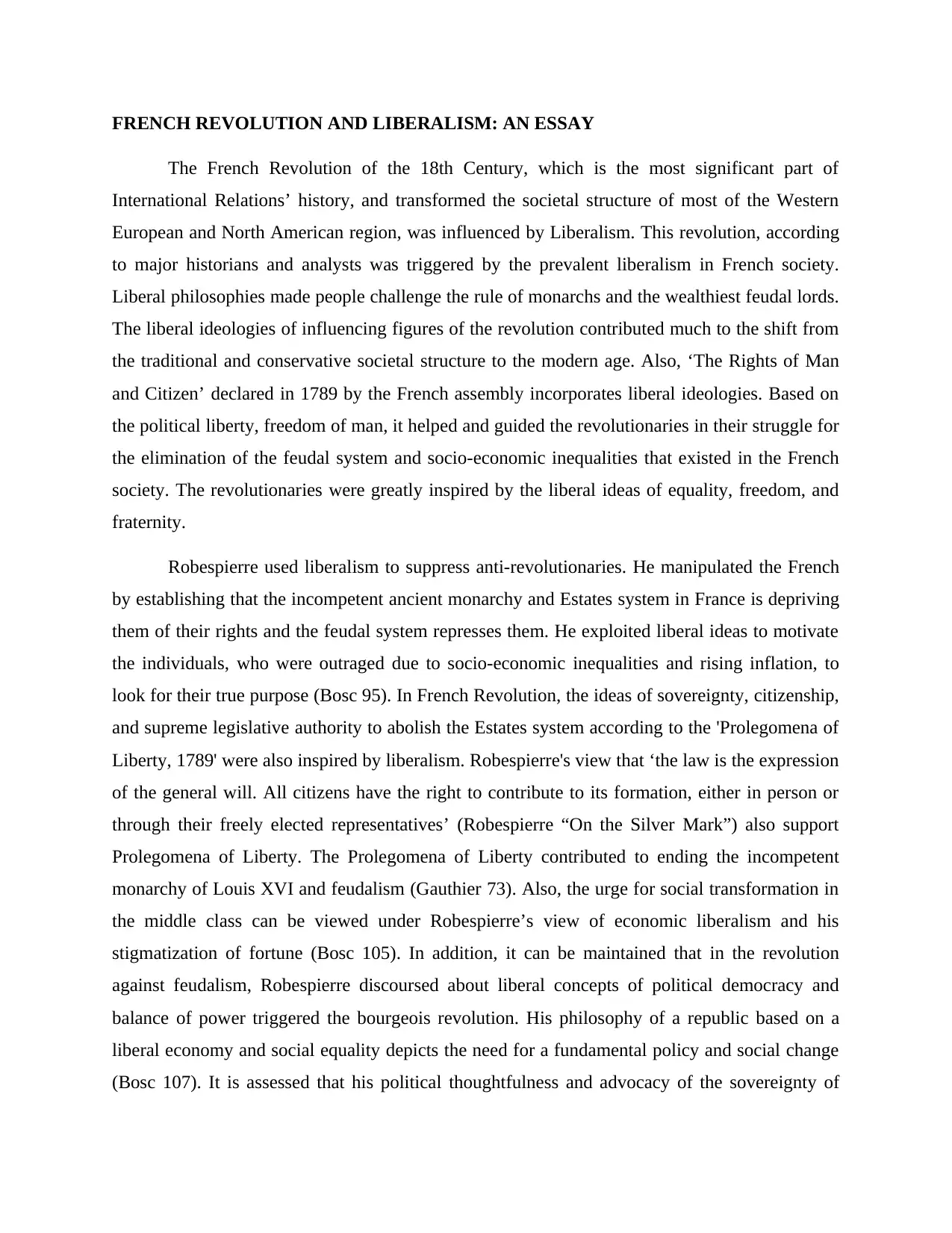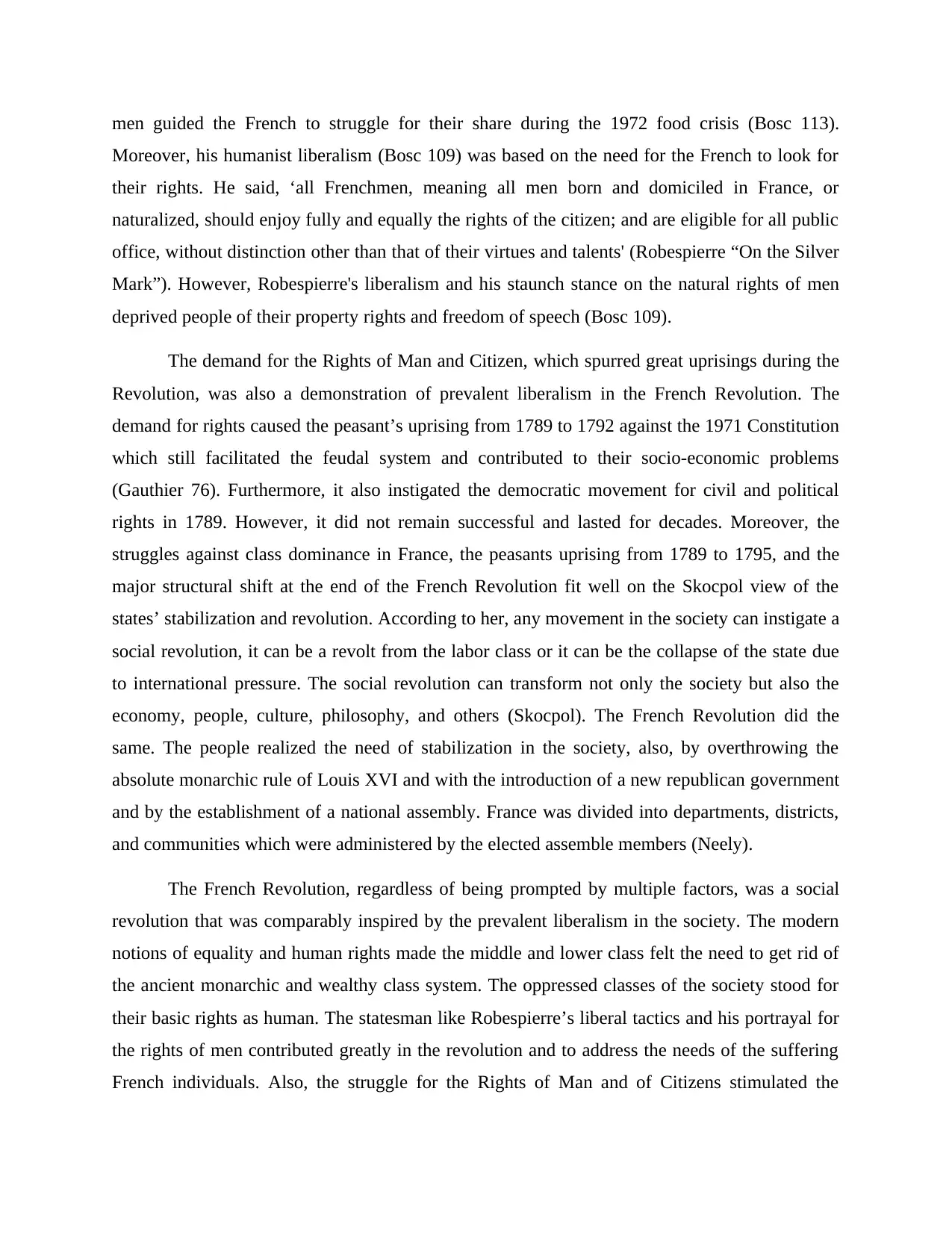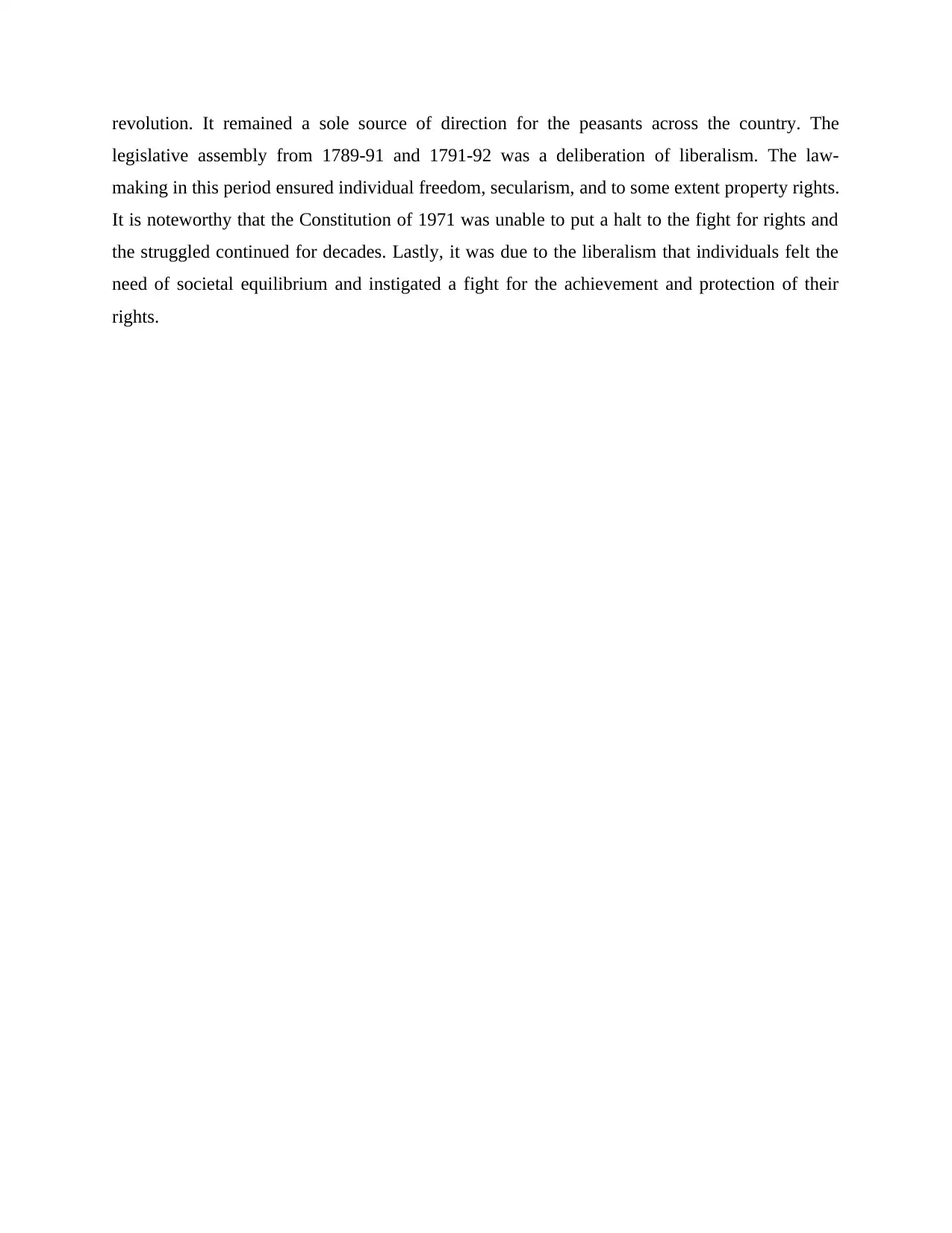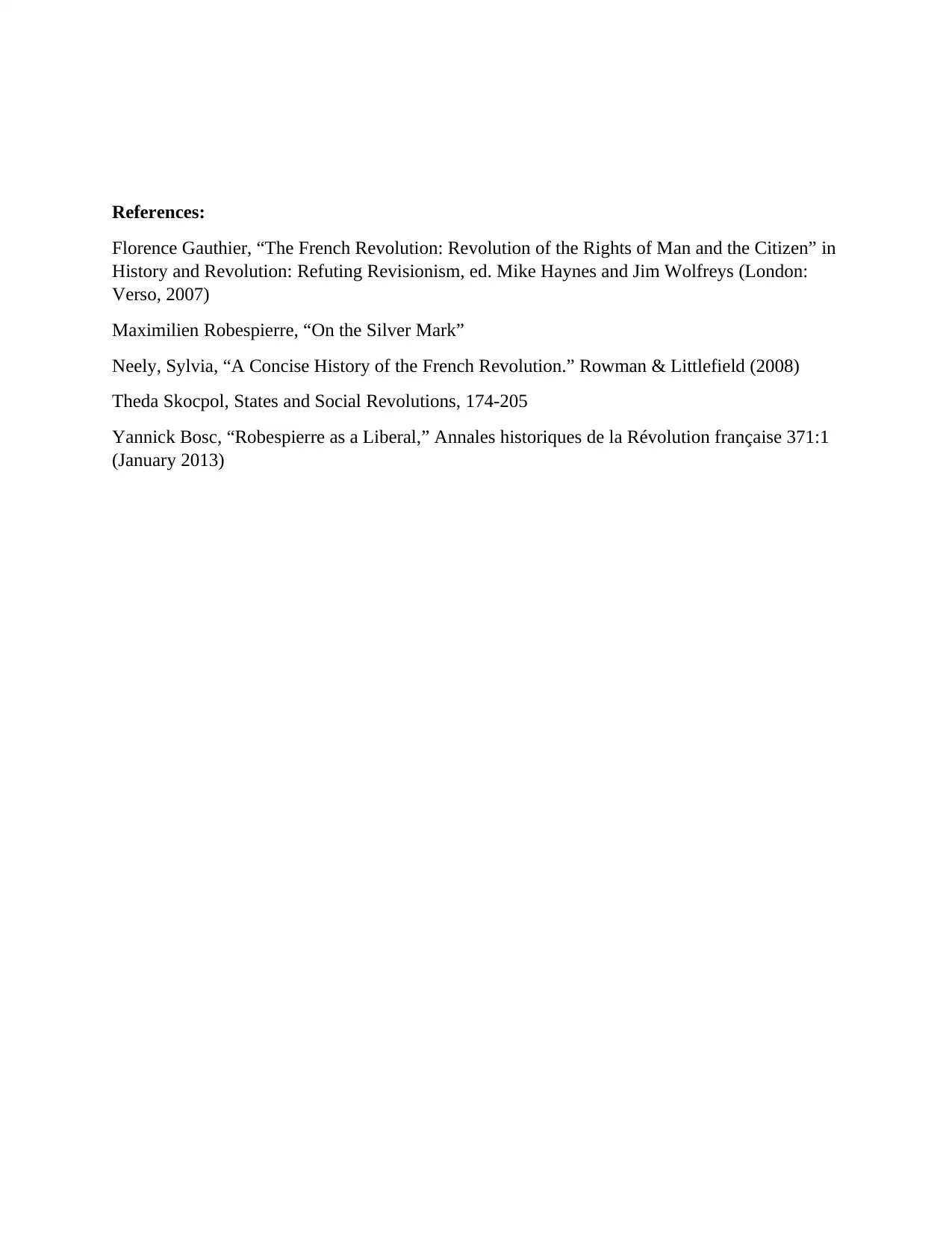Essay: The French Revolution and Liberalism's Influence
VerifiedAdded on 2022/10/03
|4
|1179
|56
Essay
AI Summary
This essay delves into the significant role of liberalism in shaping the French Revolution of the 18th century. It explores how liberal philosophies challenged the existing monarchical and feudal systems, leading to societal transformation in Western Europe and North America. The essay highlights the influence of liberal ideologies on key figures like Robespierre, the declaration of 'The Rights of Man and Citizen,' and the revolutionaries' fight for equality, freedom, and fraternity. It examines Robespierre's tactics in manipulating liberal ideas to mobilize the masses, the impact of liberalism on the abolition of the Estates system, and the bourgeois revolution. The essay also discusses the peasant uprisings, the struggles against class dominance, and the structural shifts at the end of the revolution, drawing parallels with Skocpol's view of social revolutions. The essay concludes by emphasizing the importance of liberalism in instigating the fight for individual rights and societal equilibrium, analyzing legislative actions and constitutional developments during the period. This essay is a comprehensive analysis of the French Revolution and its relationship with liberalism.
1 out of 4







![[object Object]](/_next/static/media/star-bottom.7253800d.svg)